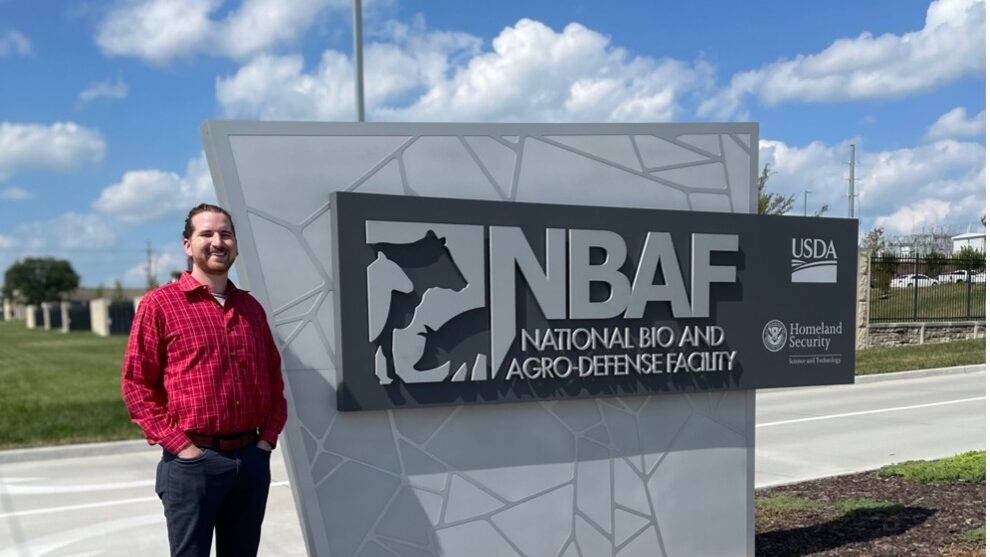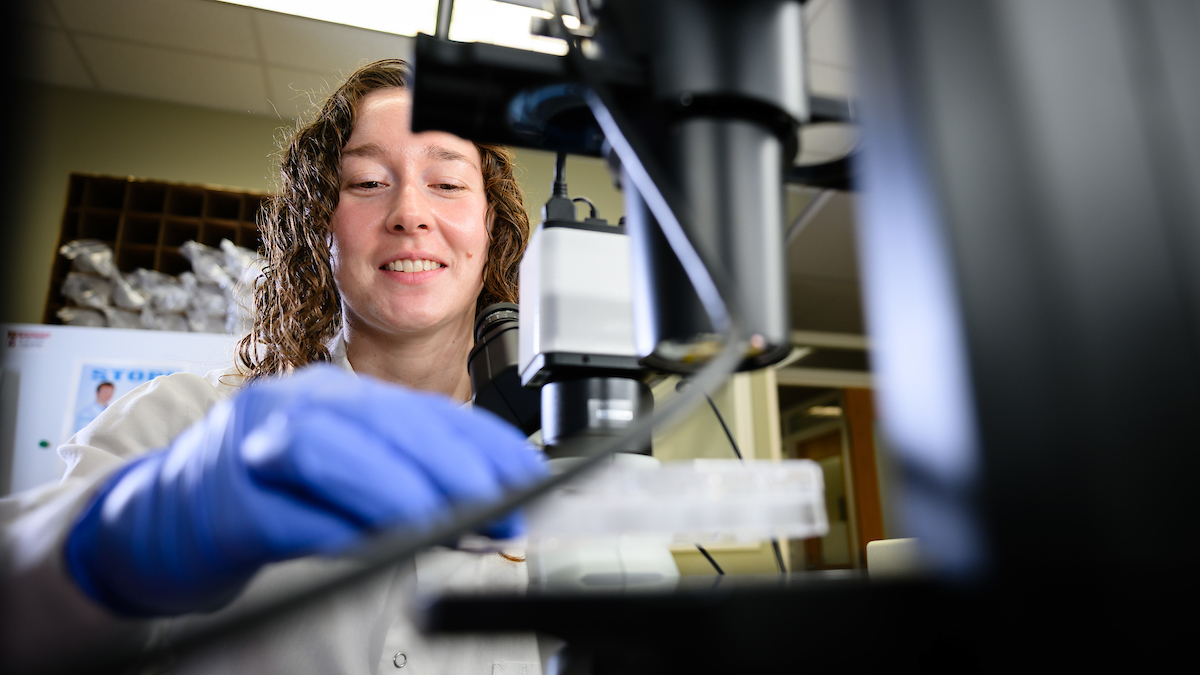Class of 2024: Always Asking Why Leads to a Destiny in Disease Research
A first-person essay by Grayson Walker, a native of Collettsville, North Carolina, who received his Ph.D. in 2022 as part of a dual DVM/Ph.D. program at NC State. After Oath and Hooding, he will be a veterinary medical officer at the U.S. Department of Agriculture.

By Grayson Walker
More than 50,000 emails. Seven years. Two doctoral degrees. One College of Veterinary Medicine. My NC State journey poetically ends with becoming a veterinarian.
This journey started when I was 6. I would find injured critters in the woods surrounding our home and try to fix them. I soon converted a 90s-era laptop bag into a veterinary medical kit so I could treat the various injuries our pets would get on their rural misadventures.
If an animal died, I was profoundly sad but never stopped wondering why. Not “Why did this happen,” but more like, “Why did disease beat out health?” “How exactly did it happen?” and “What could have been done to prevent death?”
I started planning for vet school in fifth grade. My career projects were predictable and my academic interests steadfastly scientific. I knew even then that I had one path: Attending the NC State College of Veterinary Medicine.
I was on a high school 4-H trip the first time I walked these hallowed halls. Finally, I had entered the building I had beheld only on brochures and webpages during years of research. I was amazed at how everyone greeted one another by name and spoke like old friends. It felt like … home.
For the first of only two times in my life, something clicked: I would be here one day.
I assumed I would follow the traditional steps toward becoming a veterinarian – an undergraduate degree and four years of vet school. I started with an undergraduate degree in poultry science at NC State in 2013. I didn’t know I’d cut my teeth in academia with poultry research, fall in love with microbiology and complete my master’s in poultry science in 2017. This primed me for a new path to the College of Veterinary Medicine: the combined DVM/Ph.D. program. I started in 2019 and completed my Ph.D. with a focus on infectious diseases in 2022 with unwavering support from my mentors, Dr. Luke Borst and Mitsu Suyemoto.
In hindsight, I was destined to become a veterinary infectious disease researcher. I love to explore and collaborate through interdisciplinary research, and there’s no better place to do that than at NC State.
The diversity of my research interests has increased 100-fold during the past seven years. I’ve identified bacterial diseases in avian and canine patients with state-of-the-art diagnostics. I’ve worked tirelessly to characterize the causative pathogens with cutting-edge research methods. As a clinician scientist, I’ve researched important topics ranging from COVID-19 impacts on veterinary education to measles epidemiology at the Centers for Disease Control and Prevention during my clinical year.
Anything I’ve been interested in, I’ve been able to pursue with unwavering support from my peers and faculty at the NC State College of Veterinary Medicine.
I’ve walked out of this building with pure joy after experiencing a research discovery, a successful surgery or patients I’ve helped care for go home. I’ve endured my hardest days here. I remember the patients who didn’t leave, the loss of a mentor and a late-night trip to say a final goodbye to my spunky cat, Savannah, who passed unexpectedly while I was traveling.
Still, I asked, “Why?” In this case, it was my classmates who helped me answer that question as they completed her autopsy and granted me closure with answers.

This is the spectrum of experiences that define a life chapter, and it’s more vivid to me than any other. Not because of what I’ve done, but because of the people I’ve experienced it with.
The second time it clicked, when I knew would end up somewhere, I was standing on a hill in Manhattan, Kansas. I was looking down on the National Bio and Agro-Defense Facility where my job as a veterinary medical officer with the U.S. Department of Agriculture awaits. I’ll be doing diagnostic work for animal diseases that are so horrible, we’ve eradicated them from this country and can only study and diagnose them in highly equipped, secure facilities such as NBAF.
As my classmates move forward with incredible careers in clinical medicine, I’m excited to embark on this lesser known but vital discipline of veterinary medicine. There’s no place like home, but I’m clicking my heels to go study pathogens on the prairie at my new home. The experiences I’ve lived here at the NC State College of Veterinary Medicine have become woven into the fibers of my being. It has been and always will be home.


